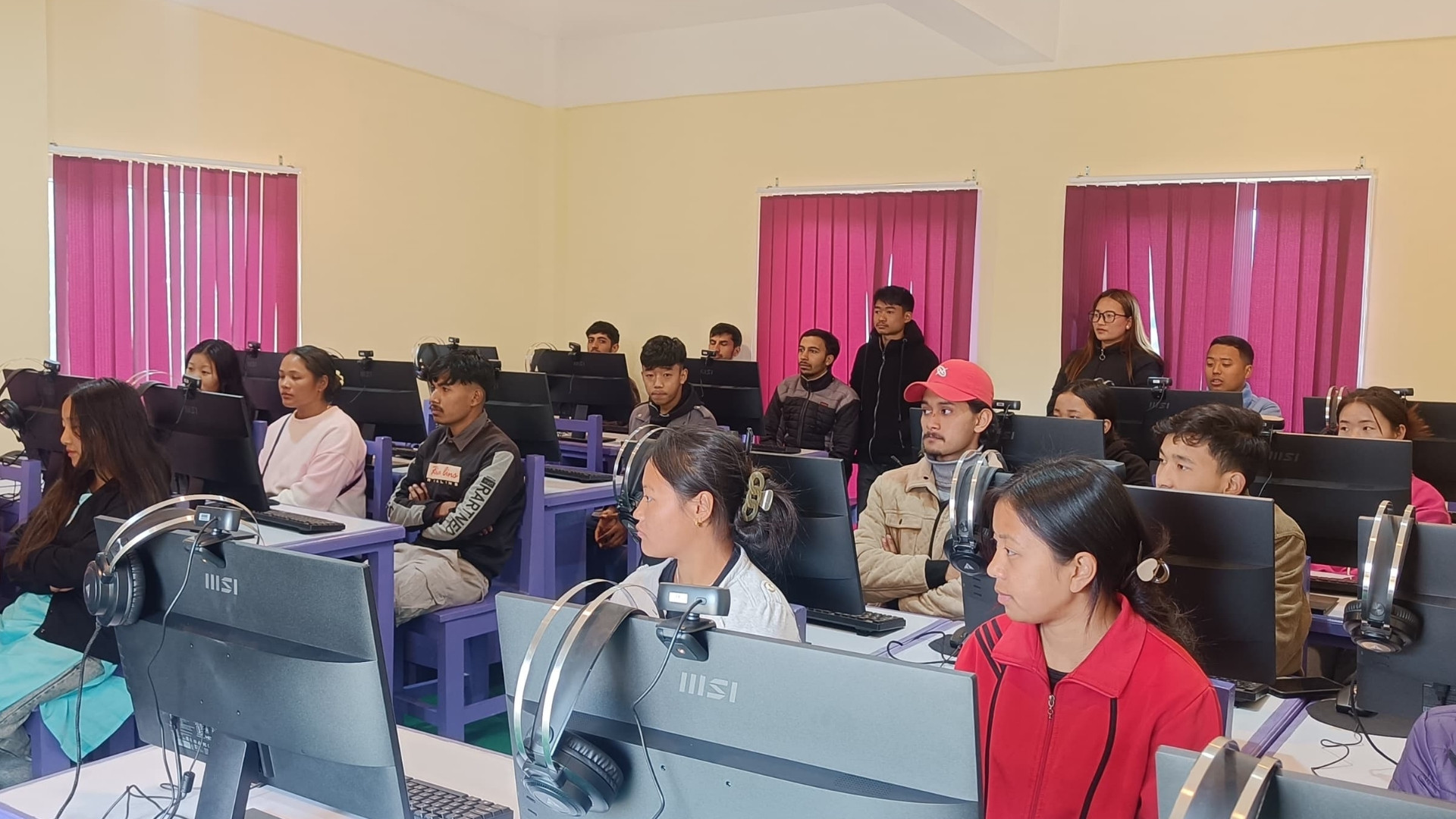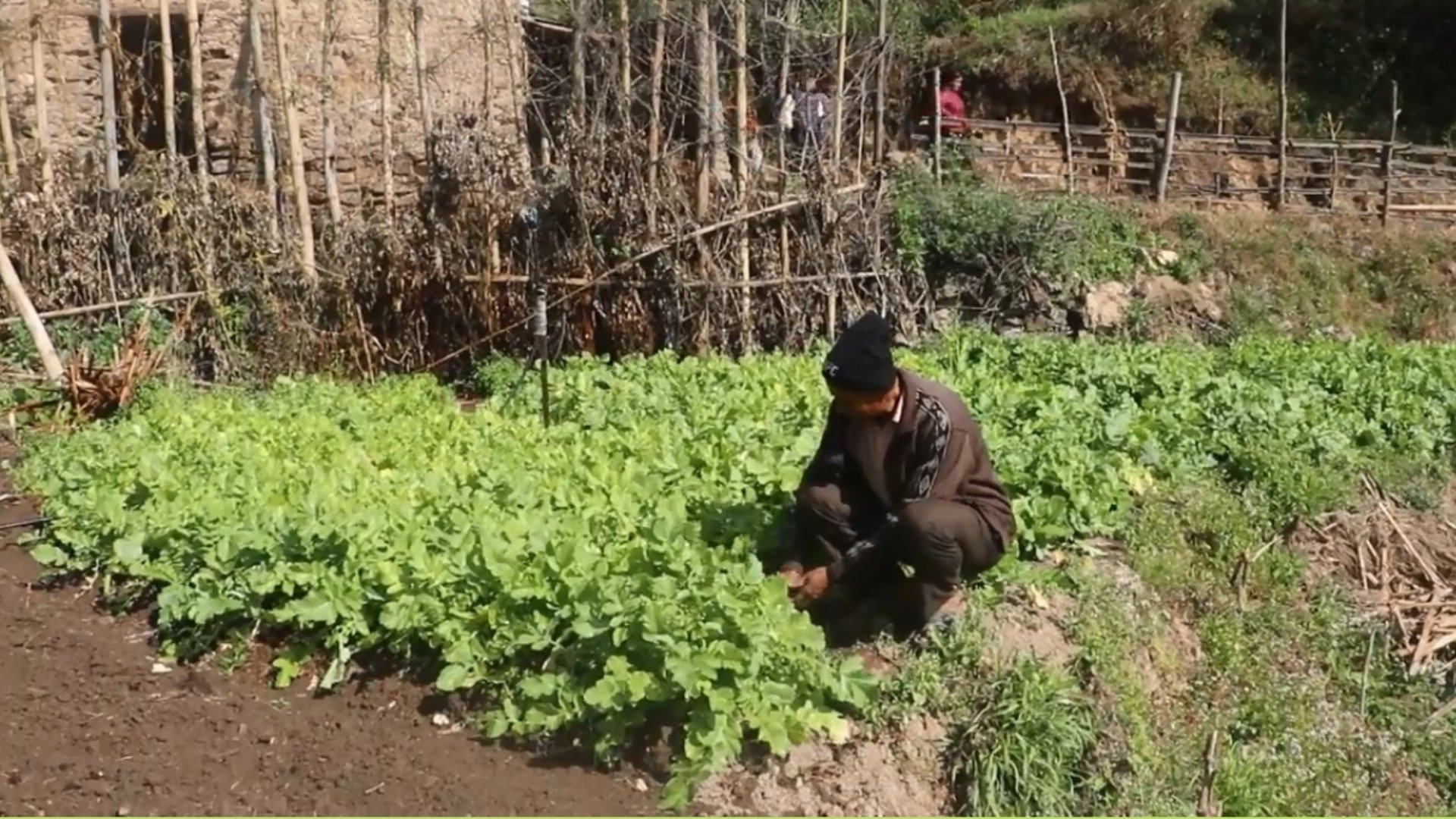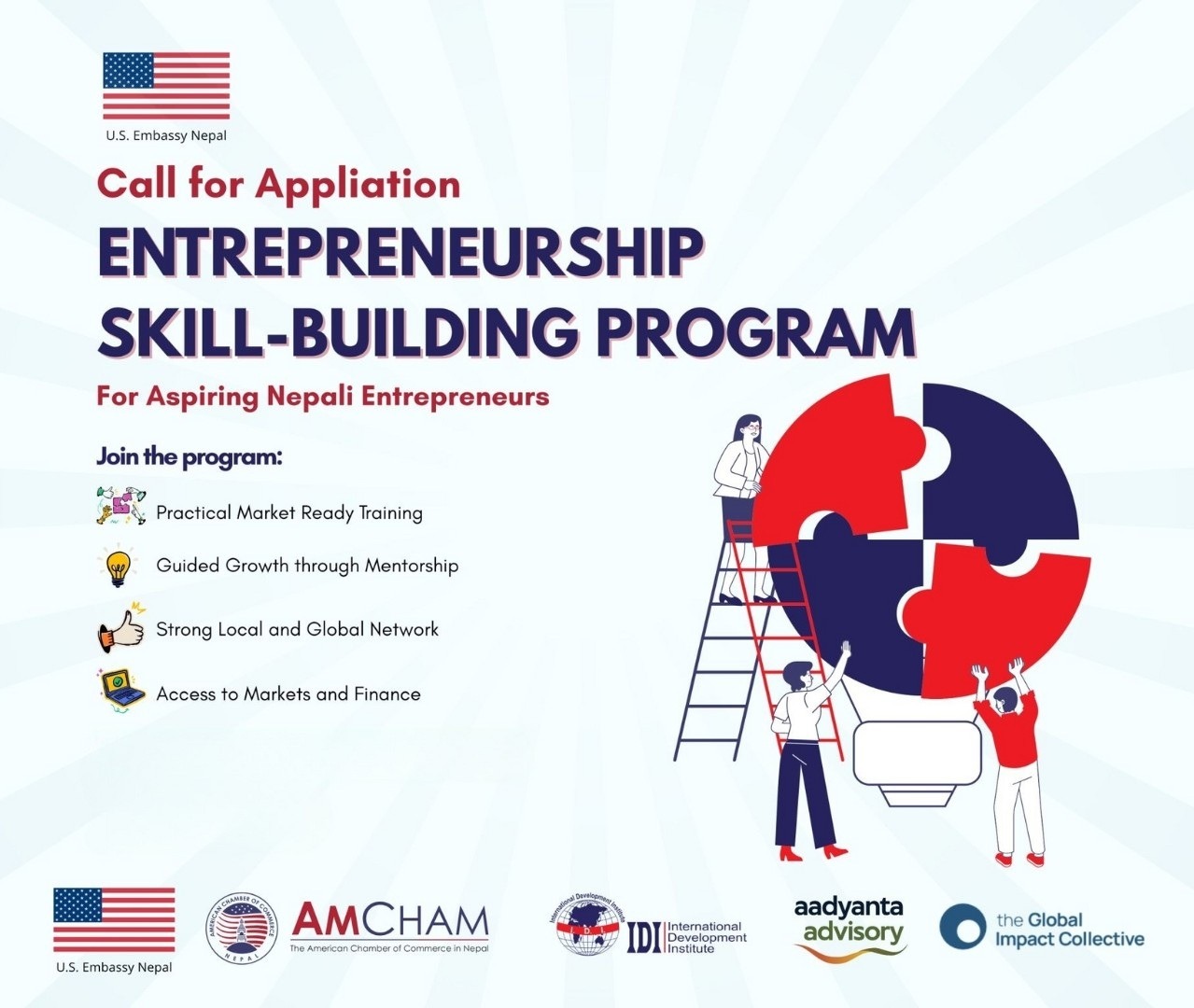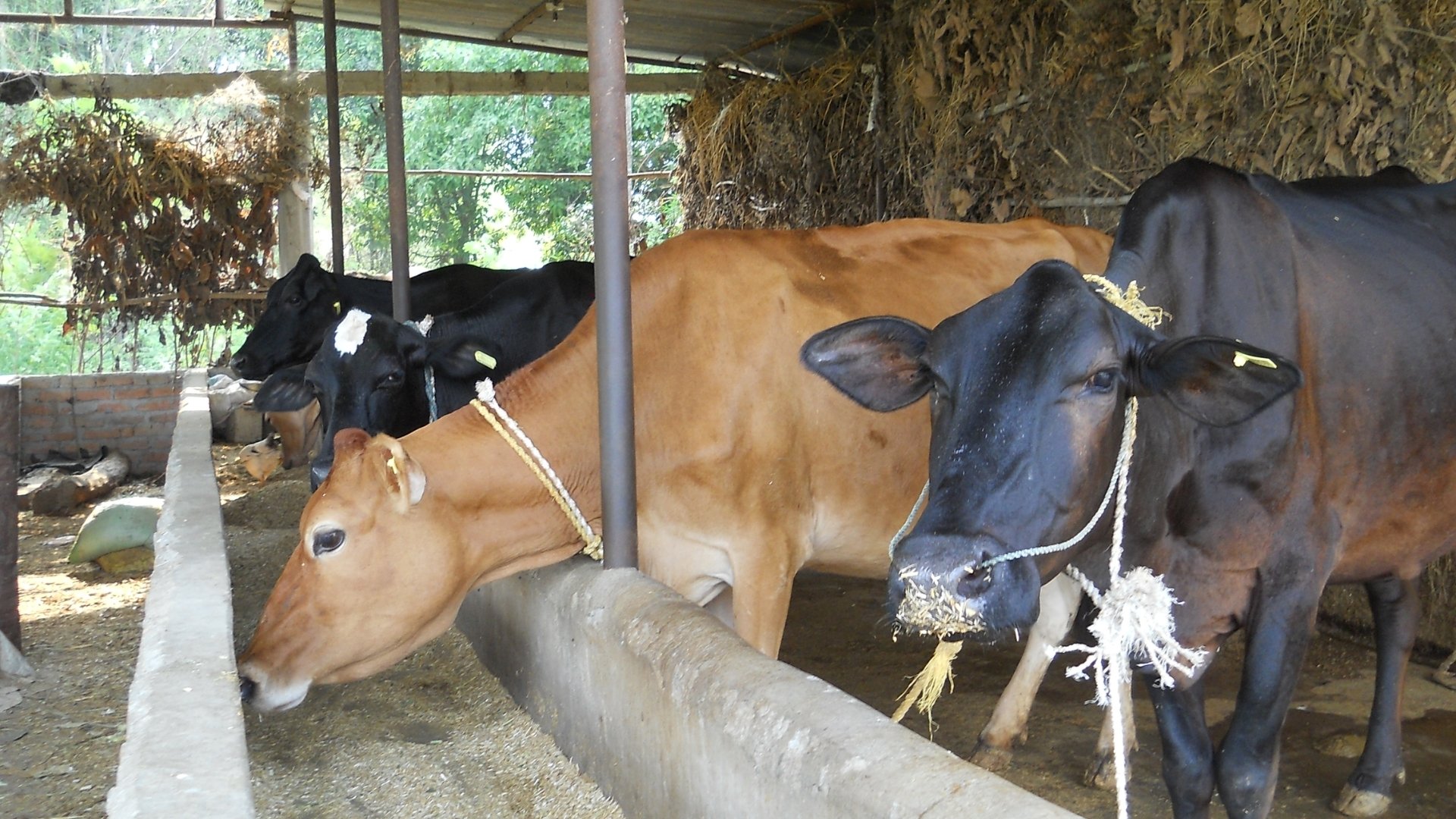In the eastern hills of Nepal, in a small town called Phungling, the story of a quiet transformation is unfolding. For years, most young people in this area saw limited paths after completing school. Only a few managed to leave for higher education. Many stayed behind, working in agriculture or taking up jobs abroad in search of better income. Some went to the Gulf, others crossed the border to India. Almost all of them settled for work that paid just enough to get by.
That pattern repeated for years—until a simple question sparked a shift.
“What happens to these students after Grade 12? Where do they go?”
The question came from Waldemar Schmidt, a Danish national working with a nonprofit called the Human Practice Foundation, which had already been helping local schools improve infrastructure in Taplejung. His curiosity led to a deeper understanding of the realities young people faced in this region.
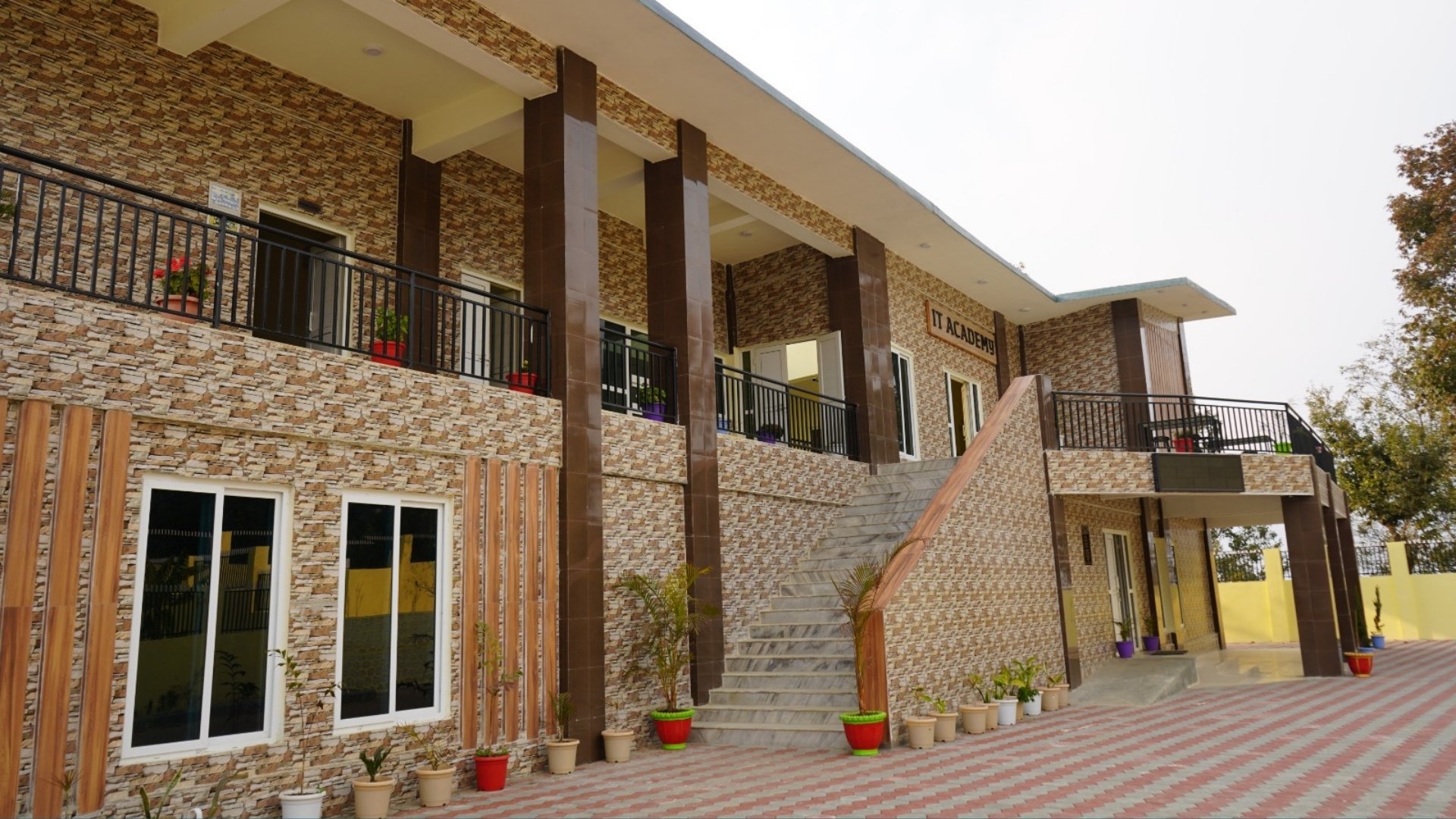
What he found was predictable—but troubling. Most students weren’t continuing their studies. And those who had finished school were entering low-paid, unstable jobs. There was talent, but it had nowhere to go.
This realization led to the creation of IT Academy–Taplejung in 2023, in collaboration with Shree Bhanu Jan Secondary School. It wasn’t just about teaching tech skills. It was about opening a new path—one that didn’t require leaving home to find work.
A school project that grew into something bigger
IT Academy began as a local effort with international support. The goal was clear: to give rural youth access to digital skills so they could work online, freelance, or apply for remote jobs. Over time, the idea started to take hold.
“We wanted to help young people stay in their communities and still have access to meaningful work,” says Basanta Limbu, the Academy’s coordinator. “Leaving the country shouldn’t be the only option.”
Today, the Academy runs two training batches at a time. The first-level course includes graphic design, digital marketing, and web development. A more advanced, second-level course is set to launch in 2026, with modules in video editing, animation, backend programming, and cybersecurity.
So far, 171 students have completed training. Around 60 of them are already working—some with local firms, others with international clients.
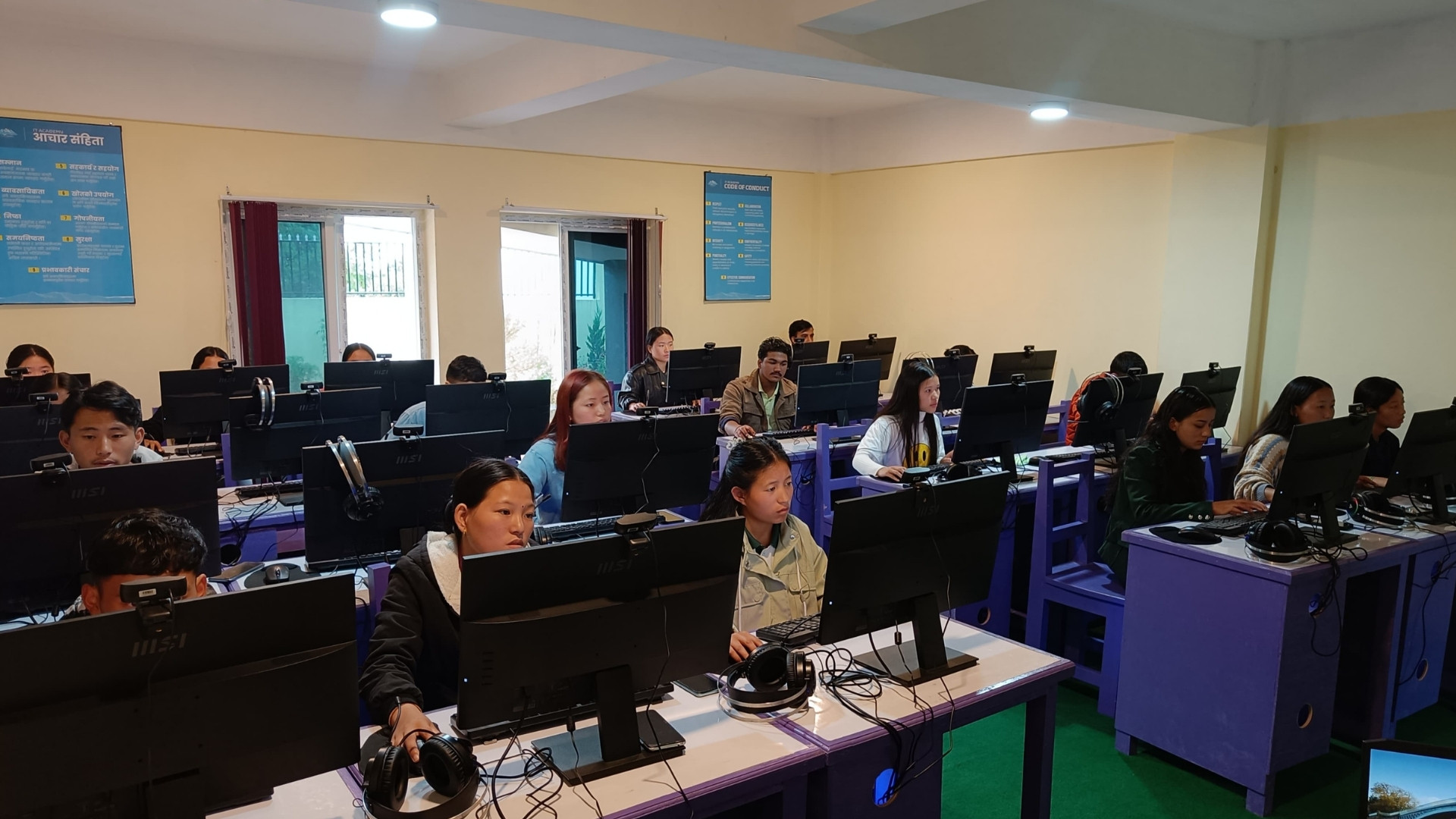
Learning to work from home
The structure of the training is designed to ease students into both the technical and professional world. The first four months focus on skill-building. The next two introduce soft skills: how to work with clients, how to navigate freelance platforms, and how to handle real-world projects.
The Academy also offers an internship and a part-time job placement for students who complete their course. With an 85% scholarship, students only pay $50 for the first-level training. Afterward, they’re supported with an unpaid internship followed by a part-time remote job that pays about $125 per month for four hours of daily work.
For many, it’s their first experience earning through a laptop.
Small shifts, big meaning
One of the biggest changes the Academy has brought is in how people think about work. Many young people who had once believed they needed to leave the village to earn are now doing so from their homes. Families are starting to see digital work as a real option.
The impact has reached women, too. Some of them, unable to travel for work due to household responsibilities, are learning to earn from home using the skills taught at the Academy.
“We’ve seen women with young children who couldn’t leave the house, now earning by designing or managing social media for clients,” says Limbu. “It’s not dramatic, but it’s life-changing.”
Local government steps in
In 2025, the Koshi Province Government allocated NPR 4 million to support the Academy’s work and growth. The initiative caught the attention of local officials who saw its potential to reduce unemployment and keep young talent in the region.
But there are challenges ahead.
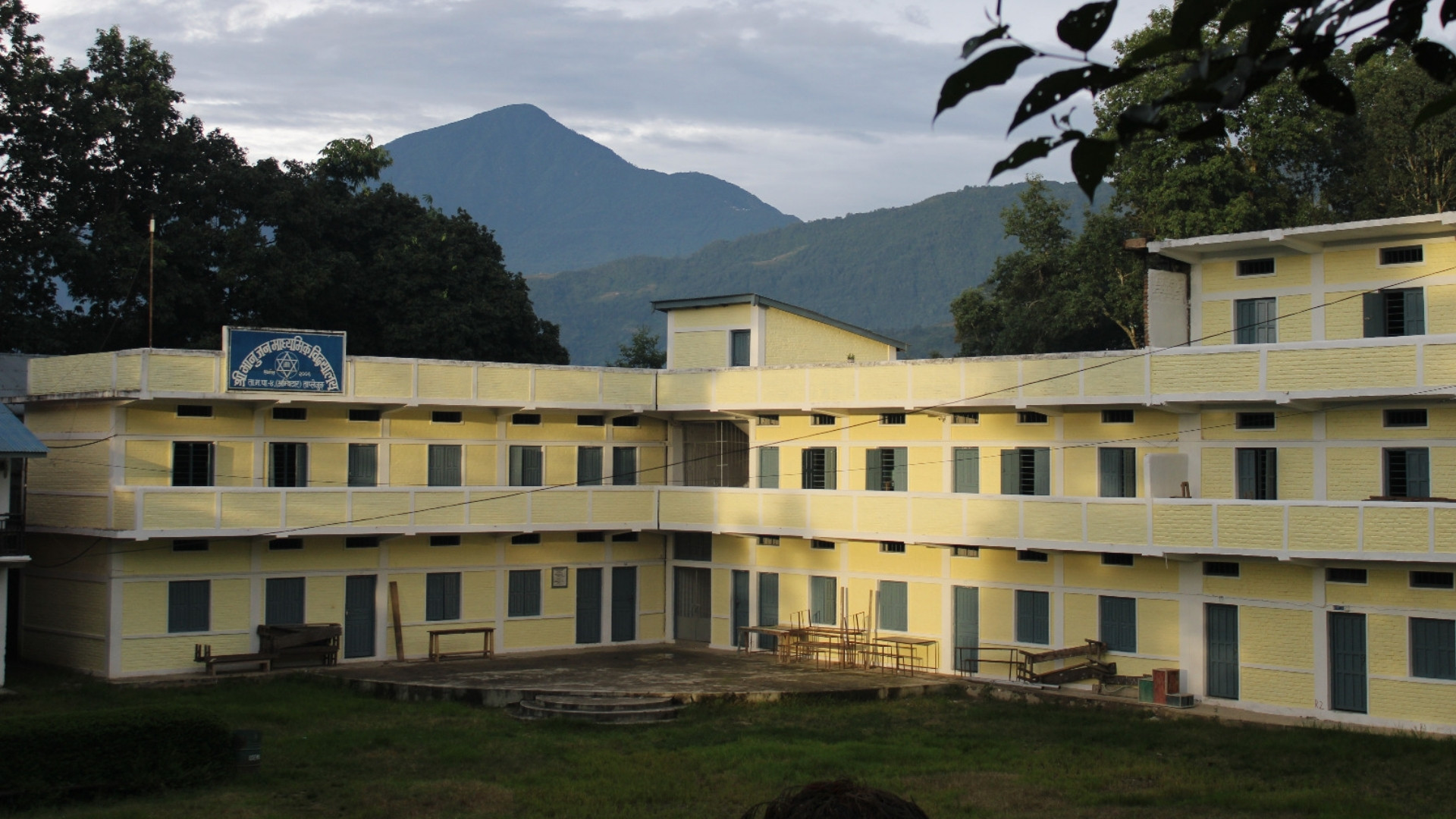
The Academy was established with foreign support. The agreement with the Human Practice Foundation runs until 2028. After that, the Academy must become self-sustaining. Support will gradually decrease each year until it ends completely.
“It’s a transition we’re preparing for,” says Limbu. “We’re hopeful that the government and community will continue to support the work we’ve started.”
A local perspective
Basanta Limbu was involved with the Academy from the planning phase. With a background in IT and journalism, he’d spent years working in Taplejung and had seen firsthand the frustration young people felt when faced with limited opportunities.
“They weren’t lazy or unmotivated,” he says. “They just didn’t see where to begin.”
He noticed more young people were starting to question the idea of traditional office jobs. They wanted flexibility. Many preferred to work on their own schedule, from their own space. The Academy offered just that.
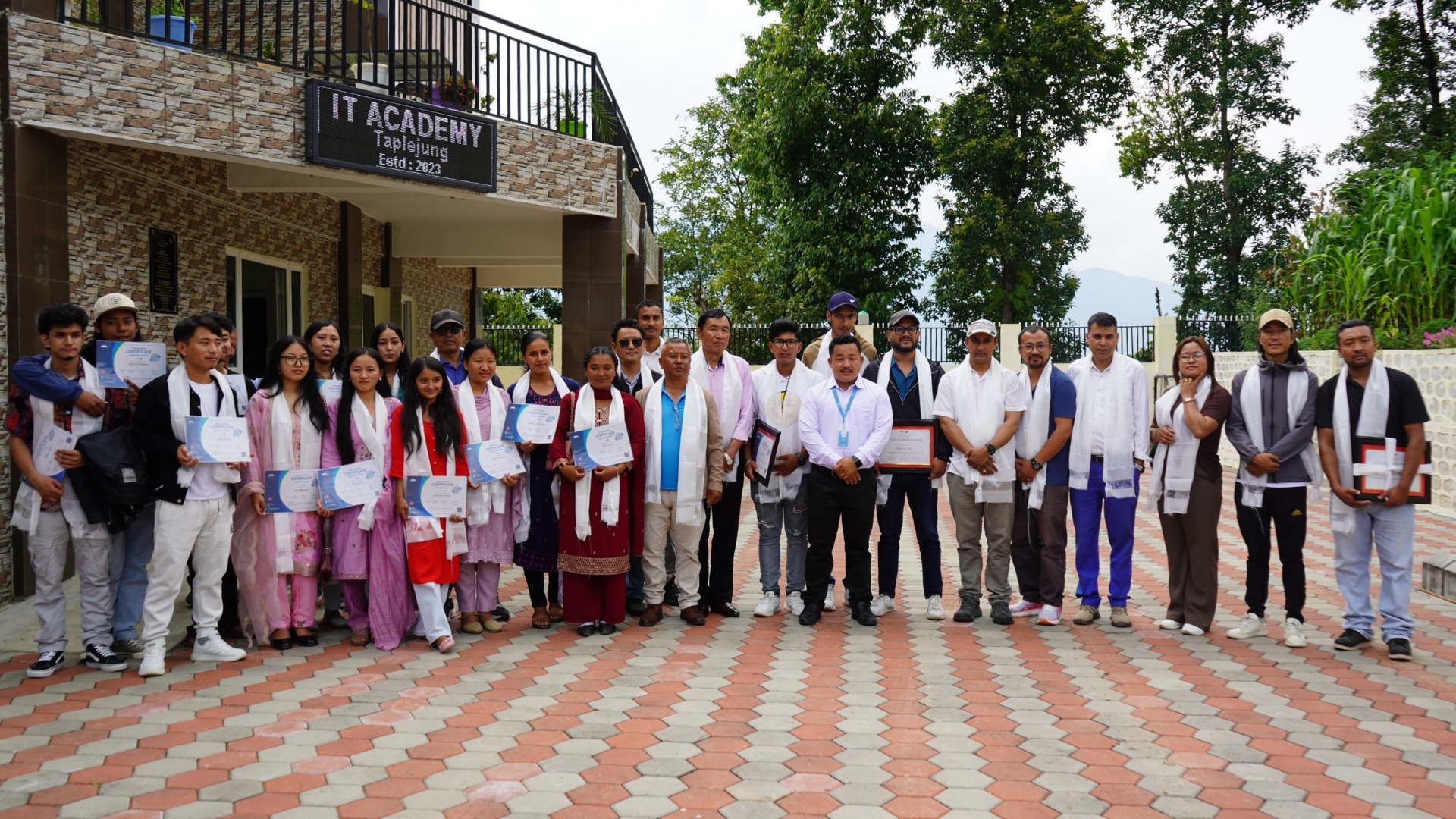
Now, as he watches former students earn from home, he sees a subtle but important shift.
“It may not seem like a big change from the outside,” he says, “but for these young people and their families, it means a lot.”
Looking back—and forward
A decade ago, the idea of earning money from a laptop in a rural village was almost unimaginable. Freelancing wasn’t a familiar concept, and most young people had to go to Kathmandu to learn tech skills.
Now, the story is different.
The tools are available. The training is here. And the mindset is changing.
“If this kind of opportunity had come earlier, many lives might have turned out differently,” says Limbu. “But even now, it’s not too late.”
For him, the next step is clear. Skills need to be taught earlier—starting from the school level—so children can grow up with a better sense of what’s possible.
“Today, the competition isn’t just inside Nepal. It’s global,” he says. “We’re not just talking about exporting products anymore. It’s time to start exporting services and skills too.”
A quiet start with a long road ahead
IT Academy — Taplejung hasn’t made headlines, but it’s changing lives in a quiet, steady way. In a town once considered too remote for digital work, young people are now working with clients across borders.
It’s not a revolution—but it’s a start. And like many good stories, it began with a simple question, a bit of support, and a belief that even from a small hill town, you can reach the world.

